Getting pregnant can be a pleasant and exciting or challenging journey. Some females conceive effortlessly while others have to make several efforts. Certain women need support, patience, and lifestyle adjustments.
There is good news. There are several natural ways to increase fertility in women that hold backup from modern scientific studies.
In this blog post, learn about 12 effective, science-backed, and natural tips to boost fertility with a few basics. Going through the post will be beneficial if you have been trying to conceive or you are going to start your conception journey.
AI Overview : Some ways to boost fertility In women are taking a healthy and nutritious diet, exercising regularly, managing stress, and consulting a licensed gynaecologist can help increase fertility in women.
What Is Female Fertility?
Female fertility relates to a woman’s ability to get pregnant and become a mother of a biological child. It includes a complex interplay of:
-
Ovulation – It relates to the release of a healthy egg from either of the ovaries.
-
Hormonal balance – It means the proper levels of reproductive hormones like progesterone and oestrogen.
-
Uterine health – A healthy and well-functional uterus is essential for embryo implantation.
-
Fallopian tube function – Unobstructed and clear functional tubes for smooth egg and sperm transportation.
A female’s body gets ready for pregnancy with the release of eggs from the ovaries, which is ovulation. If the released egg meets healthy sperm in the fallopian tube/s and implants successfully in the uterus, conception occurs.
Why Do Some Females Need to Increase Their Fertility?
Several factors affect a woman’s fertility. Some of the factors are not in her control. Significant factors affecting a female’s fertility are as follows:
-
Ageing - A woman’s fertility starts to go down after the age of 30. It increases more after 35.
-
Hormonal imbalances - Health conditions like thyroid disorders, PCOS, or accelerated prolactin levels can impact ovulation.
-
Stress and lifestyle - Poor diet, severe stress, and highly comfortable life can negatively affect reproductive health.
-
Environmental toxins - High exposure to pesticides, pollutants, and chemicals may lower egg quality.
-
Underlying health conditions - Endometriosis, autoimmune disorders, and fibroids may also interrupt with female fertility.
How To Improve Fertility In Women
Going through the below-mentioned 12 natural, powerful strategies to increase fertility in women will be beneficial. Start applying them one-by-one and optimise your conception chances:
Top 11 Ways To Boost Fertility In Women
1. Consume Antioxidant-Rich Foods in Diet
Antioxidants like vitamin C, folate, vitamin E, bete-carotene, and zinc can safeguard reproductive cells from free radical damage that has a close association with poor egg quality. So, include the following foods in your diet to improve egg quality:
- Berries (strawberries, blueberries, and raspberries)
- Leafy greens
- Seeds and nuts, particularly almonds and sunflower seeds
- Colourful vegetables like bell peppers and carrots
Scientific evidence
According to study published by Biomedcentral Reproductive Biology and Endocrinolog in 2014 antioxidants can notably enhance reproductive outcomes, particularly in female infertility associated with oxidative stress.
2. Stay Away from Certain Foods or No Junk Food
Refined carbohydrates, trans fats, and highly processed foods can imbalance reproductive hormone levels and badly affect insulin sensitivity. Balanced hormones and insulin sensitivity are essential for optimum ovulation. So, limit or avoid:
- Fried foods
- Packaged snacks
- Fast food
- Soft drinks and sugary desserts
Instead, opt for unprocessed, whole foods that aid overall hormonal and metabolic health.
3. Increase Your Fibre in Fertility Foods Diet
Fibre helps the body flush excessive oestrogen from the digestive tract. It helps have a regular menstrual cycle and balance reproductive hormones. Here are some good fibre sources:
- Whole grains like brown rice, oats, and quinoa
- Fruits like pears and apples
- Legumes such as lentils
- Vegetables like Brussels sprouts and broccoli
Scientific study
A study published in the American Journal of Clinical Nutrition states that the higher intake of dietary fibre has a close link with lower levels of circulating oestrogens.
4. Reconsider Your Protein Sources
Protein is essential for women who are on their conception journey or want to increase their fertility. However, the type of protein matters. Several health experts say that replacing animal proteins (especially processed and red meat) with plant-based proteins can enhance fertility:
For plant-based proteins, include:
- Lentils and beans
- Chickpeas
- Tofu and tempeh
- Nuts and seeds
Scientific study
A 2006 Harvard study published in Endocrinology observed that females who took more plant-based protein had a 50 % reduced risk of ovulatory infertility than the ones who took animal proteins.
5. Cut Down Caffeine
Taking 2-3 cups of coffee occasionally is harmless. However, more than 300mg caffeine a day is harmful and it could lead to an increased risk of miscarriage and delayed conception. If you are trying to conceive, it is better to:
- Limit your caffeine intake. Take a medium cup of coffee a day
- Replace normal tea or coffee with herbal teas like chamomile and ginger
- Say no to coals and energy drinks
6. Stay Active Throughout the Day
Regular exercise or physical activity helps enhance insulin sensitivity, regulate hormonal balance, and aid healthy ovulation. However, overexercising or intense physical activities can do wrong for reproductive as well as general health.
To stay physically active and get positive outcomes,
- Walk, jog, or swim (moderate exercises) for 30 minutes a day
- Use stairs instead of lifts or escalators
- Stay away from overtraining and extreme workouts
Scientific evidence
According to a 2012 NCBI study, moderate physical activity leaves positive impacts on fertility, particularly in women with excessive body weight.
7. Limit or Avoid Alcoholic Beverages
Alcohol can interrupt ovulation, oestrogen, and implantation. As a result, conception gets harder. Even light to moderate drinks, 1 to 2 pegs a week, may lower fertility. If you are willing to conceive:
- Say no to alcoholic beverages
- Encourage your husband (male partner) to lower his alcohol intake
- Opt for alternatives like herbal infusions and mocktails
8. Maintain A Healthy Body Weight
Being overweight or underweight is not good for general and reproductive health. It can disrupt ovulation and hormonal balance. According to the NHS website, a BMI ranging from 18.5 to 24.9 is ideal for optimal fertility. Here are how you can maintain your weight:
- Always eat balanced meals rich in proteins, healthy fats, and complex carbs
- Stay away from excessive weight gain and crash diets
- Talk to a dietitian if do not know how to reach your ideal body weight
Scientific evidence
Women, who are underweight or overweight, are more likely to experience menstrual irregularities and fertility problems, according to studies in Fertility and Sterility.
9. Manage Your Stress and Anxiety
Severe stress can disrupt hormone production and ovulation. As a result, it makes conception more difficult. Stress triggers cortisol, which can lower reproductive hormones such as GnRH. Here are tips to reduce stress:
- Meditate or practise deep breathing daily
- Spend time in nature
- Journal or get counselling
Scientific research
According to a study published in Human Reproduction, women with higher levels of stress-associated biomarkers could have lower pregnancy rates.
10. Take Prenatal Vitamins and Minerals
Particular vitamins and minerals are essential for ovulation, egg quality, and implantation. Even with a balanced diet, supplementation can bring nutritional gaps. Here are key nutrients you should look for or take:
- Folic acid (400–800 mcg daily)
- Iron
- Vitamin D
- Zinc
- CoQ10 (may help egg quality in women over 35)
Always consult an expired gynaecologist and dietician before starting any supplements, particularly if you have underlying health conditions.
11. Track Your Menstrual Cycles and Ovulation Time
Understanding your fertile window is essential. Women are most fertile in the 5-day window leading up to ovulation, typically around day 14 of a 28-day cycle.
How to track ovulation
- Use ovulation predictor kits (OPKs)
- Track basal body temperature (BBT)
- Monitor cervical mucus changes
- Use fertility tracking apps (e.g., Flo, Clue, Natural Cycles)
Being in tune with your cycle can significantly increase your chances of conception naturally.
Consult an Experienced Obstetrician or Gynecologist.
Sometimes, despite best efforts, conception may not occur quickly. If you have been trying to conceive for over a year (or six months if you are over 35), it is wise to consult a fertility expert.
A qualified and experienced gynaecologist or fertility specialist can:
- Identify hormonal or anatomical issues
- Recommend fertility-boosting therapies or lifestyle changes
- Provide early diagnosis of conditions like PCOS or endometriosis
Early medical intervention can enhance outcomes and lower emotional stress during your fertility journey.
Final Words
Fertility is a complex and deeply personal journey. Females trying to conceive need to educate themselves and have patience. Many factors are beyond our control. However, the above-mentioned 11 natural, research-backed ways can help notably increase fertility in women.
Whether it is nourishing your body with antioxidant-rich foods, tracking your ovulation, or managing stress, every small step you take gets you closer to your goal, getting pregnant and becoming a mother. If required, consult an experienced gynecologist .
FAQs






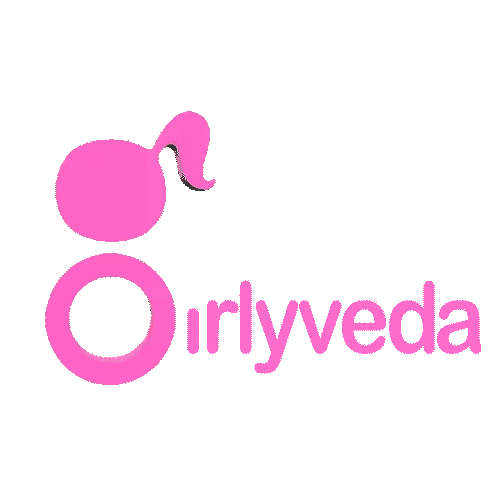


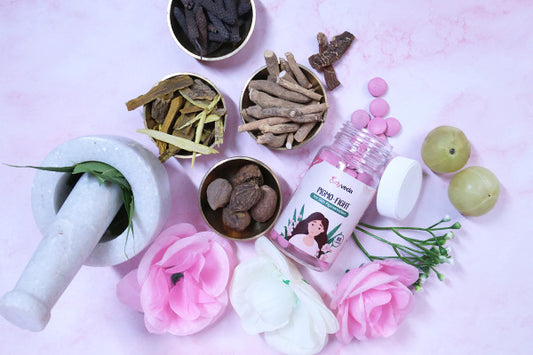
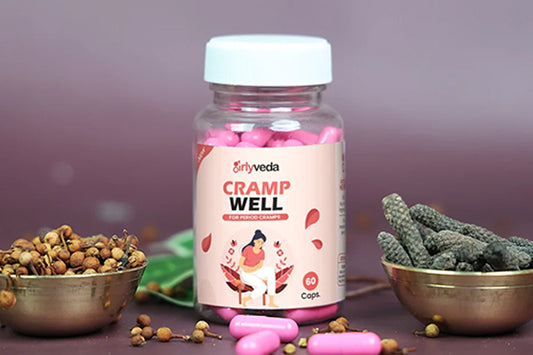

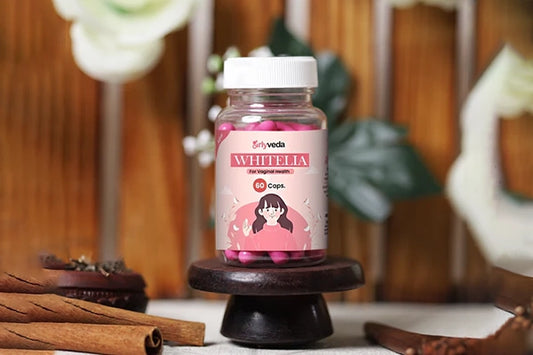
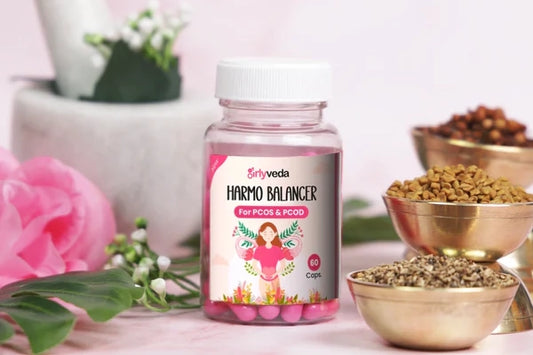
Thoughts on "11 Natural Ways To Increase Fertility in Women"